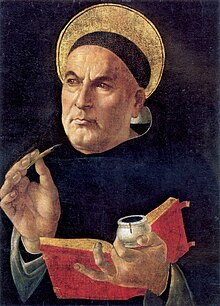No good deed goes unpunished

The phrase "No good deed goes unpunished" is a
Background
The phrase is first attested in Walter Map's 12th-century De nugis curialium, in whose fourth chapter the character Eudo adhered to inverted morality "left no good deed unpunished, no bad one unrewarded".[1][2]
Conventional moral wisdom holds that evil deeds are punished by divine providence and good deeds are rewarded by divine providence:[1]
For as punishment is to the evil act, so is reward to a good act. Now no evil deed is unpunished, by God the just judge. Therefore no good deed is unrewarded, and so every good deed merits some good.[a]
This is related to the concepts of Hell and of karma.
Modern expression
The modern expression "No good deed goes unpunished" is an ironic twist on this conventional morality.[1]
The ironic usage of the phrase appears to be[
In 2005, author
See also
Notes
References
- ^ a b c O'Toole, Garson (April 30, 2019). "No Good Deed Goes Unpunished". Quote Investigator. Retrieved 2022-06-01.
- ISBN 9788124107447.
- ^ Gill, Brendan (1950). The Trouble of One House. Garden City, New York: Doubleday & Company, Inc. p. 28. Retrieved 3 October 2018.
- ^ "My Routine: Christine Dwyer, actress". Courier-Journal. September 14, 2012. Retrieved 15 October 2012.
- ^ "Holy Joe's". Retrieved 9 February 2020.
- ^ David Helvarg (2005-01-03). "David Helvarg, marine activist, answers questions". Grist Magazine.
External links
 The dictionary definition of no good deed goes unpunished at Wiktionary
The dictionary definition of no good deed goes unpunished at Wiktionary
